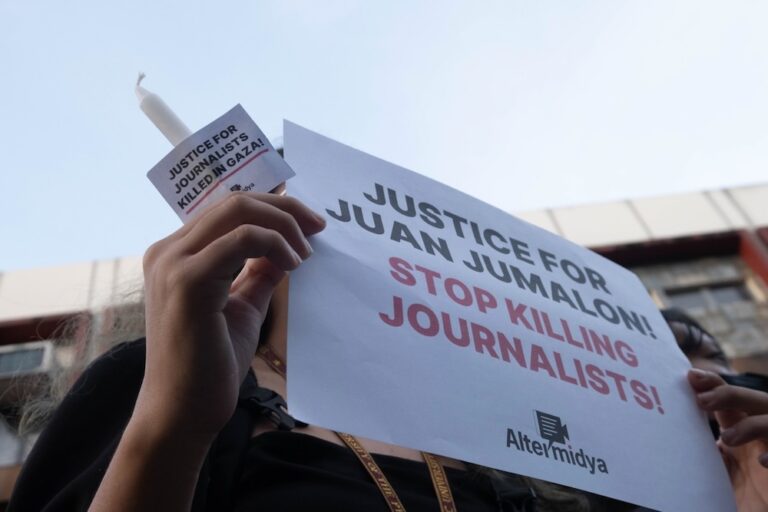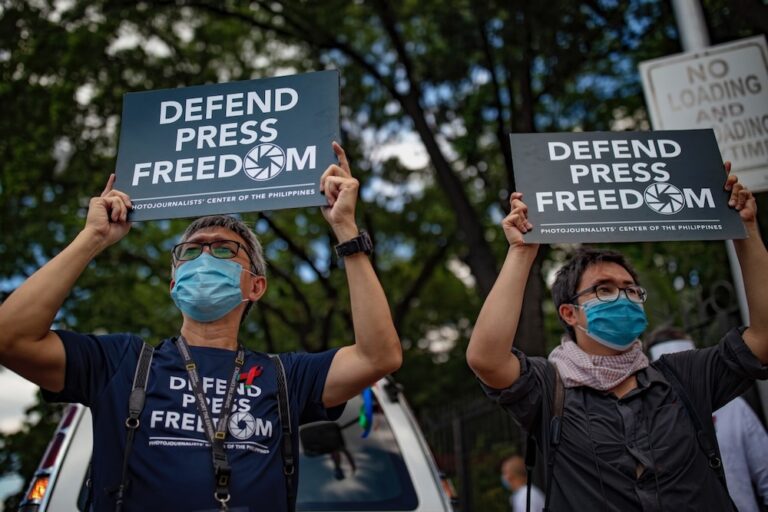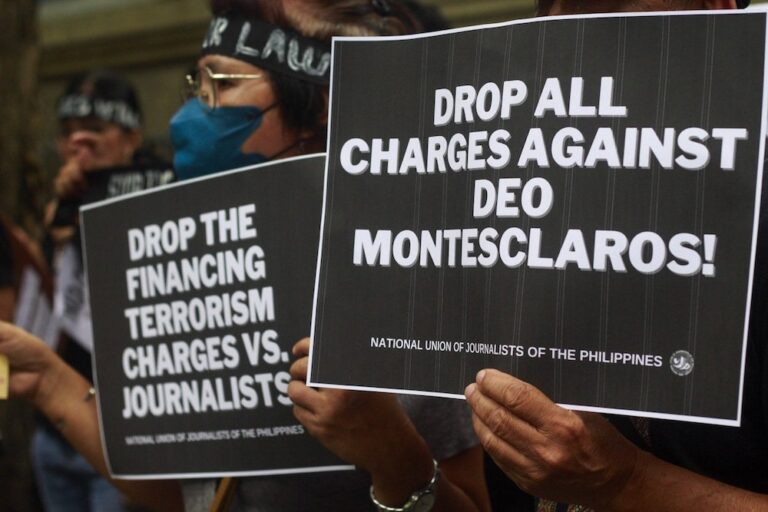(CMFR/IFEX) – On 17 February 2004, Bombo Radyo DZNC radio station, which broadcasts in Cauayan City, Isabela, was ordered closed by Mayor Cesar Dy’s government for non-renewal of its permits. Bombo Radyo officials subsequently sued the city’s government before the Philippine government’s Commission on Elections (COMELEC) for allegedly violating Section 86 of the Omnibus Election […]
(CMFR/IFEX) – On 17 February 2004, Bombo Radyo DZNC radio station, which broadcasts in Cauayan City, Isabela, was ordered closed by Mayor Cesar Dy’s government for non-renewal of its permits.
Bombo Radyo officials subsequently sued the city’s government before the Philippine government’s Commission on Elections (COMELEC) for allegedly violating Section 86 of the Omnibus Election Code, which prohibits the suspension or cancellation of operating permits during the election period. The official campaigning period for the 10 May Philippine elections began on 10 February.
On 23 March, COMELEC directed the parties to “maintain the status prevailing before February 17,” which enabled the station to resume operations.
However, on 9 May, a day before the elections, COMELEC set aside its earlier directive, saying that the closure was not election-related, but rather that it was because the station had failed to submit documents required for the granting of permits. As such, according to COMELEC, the aforementioned law could not serve as a basis for allowing the petitioners to escape compliance with the requirements for legal operation of the station.
At midnight on 10 May, Jefferson Soriano, of the Philippine National Police (PNP), COMELEC Regional Director Hilario Sagun and Senior Superintendent Nelson Mario closed the station.
In a telephone interview with CMFR, DZNC Station Manager Charmy Sabigan said the station’s fuse box was padlocked and its cable destroyed by a man alleged to be an aide to the mayor, who accompanied the team to enforce the order.
Previously, on 11 February 2002, the station was also ordered to close because of licensing problems.
The city’s zoning department claims that the land where the station is located is not classified as commercial, and therefore the station cannot be based there
Sabigan, however, told CMFR in February that the one hectare lot where the station is located has been exempted from coverage under the Comprehensive Agrarian Reform Program (CARP), pursuant to the decision of former Regional Director Abrino Aydinan of the Department of Agrarian Reform’s (DAR) Regional Office 2.


